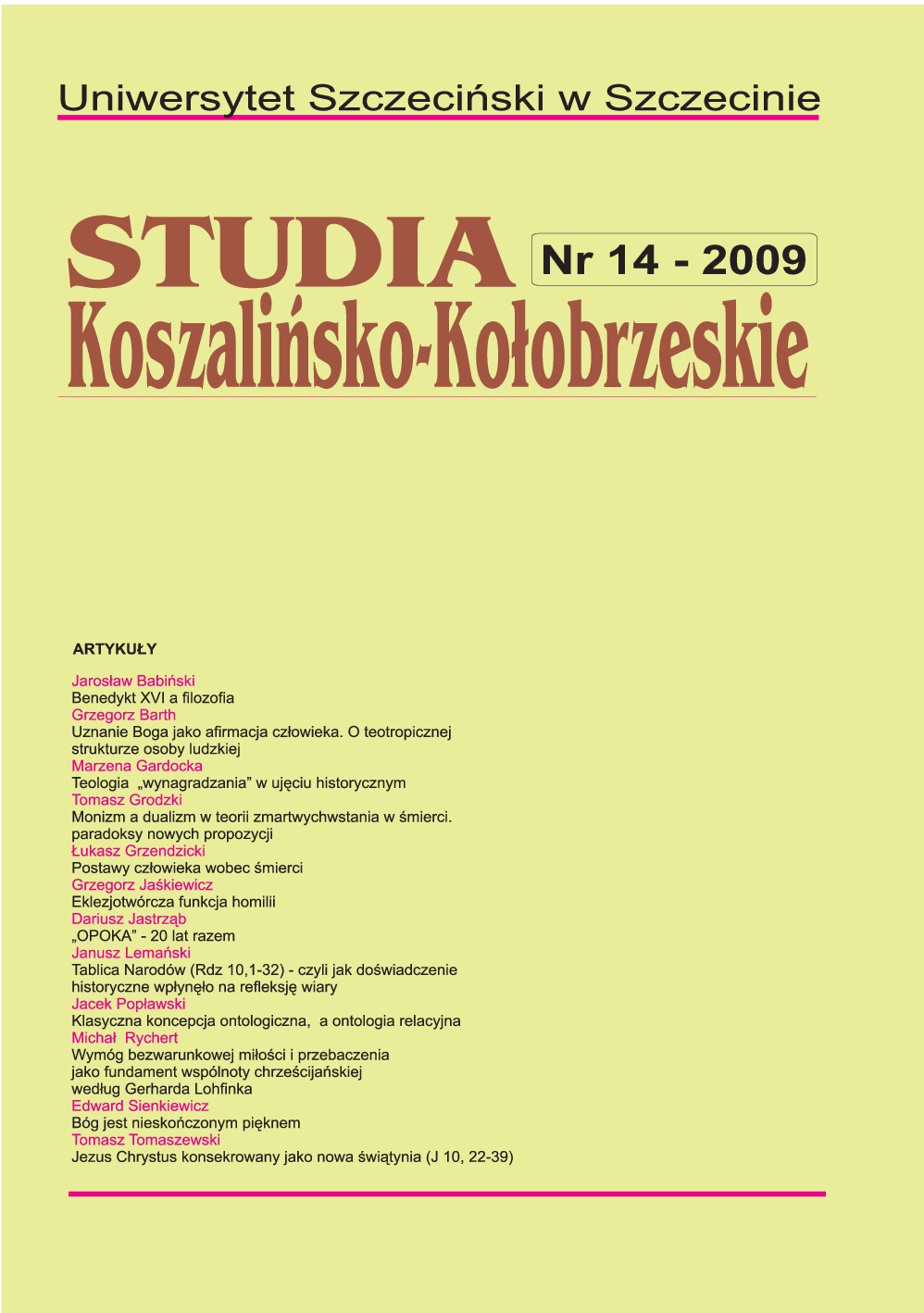Teologia „Wynagradzania” w ujęciu historycznym
The theology of "Rewarding" in historical perspective
Author(s): Marzena GardockaSubject(s): Christian Theology and Religion
Published by: Wydawnictwo Naukowe Uniwersytetu Szczecińskiego
Summary/Abstract: This article briefly presents the historical development of the catholic doctrine of reparation. Theological reflection on the atonement offered to the Father by Jesus for sins of the world was present in the Church from the very beginning. The first and most fundamental way in which reparation is understood theologically is as the atonement, expiation, propitiation or satisfaction which Christ has made for us to the Father in his redemptive sacrifice. Such understanding was deep-rooted in the Anselmian theory of the atonement that has emphasized the aspect of divine justice. In later centuries the concept of reparation was combined with the development of cult of the Sacred Heart, approved by the Popes Leon XIII (encyclical Annum Sacrum), Pius XI (encyclical Miserentissimus Redemptor), Pius XII (encyclical Haurietis Aquas). Pope John Paul II connected the idea of reparation to the attribute of divine love and therefore developed theology of mercy. Pope Benedict XVI reaffirmed the connection between the idea of reparation and love towards people as well as Christ’s obedience to the Father’s will as a foundation of the redemptive work of Christ as well as the example for Christians to follow A long history of theological reflection and revelations has shaped our understanding of the reparation today, when the idea of solidarity and pro-existence has been brought to the forefront. Jesus voluntary assumed solidarity with all people to bring them salvation. All His life and His death on the cross were manifestation of His pro-existence.
Journal: Studia Koszalińsko-Kołobrzeskie
- Issue Year: 2009
- Issue No: 14
- Page Range: 31-46
- Page Count: 16
- Language: Polish

